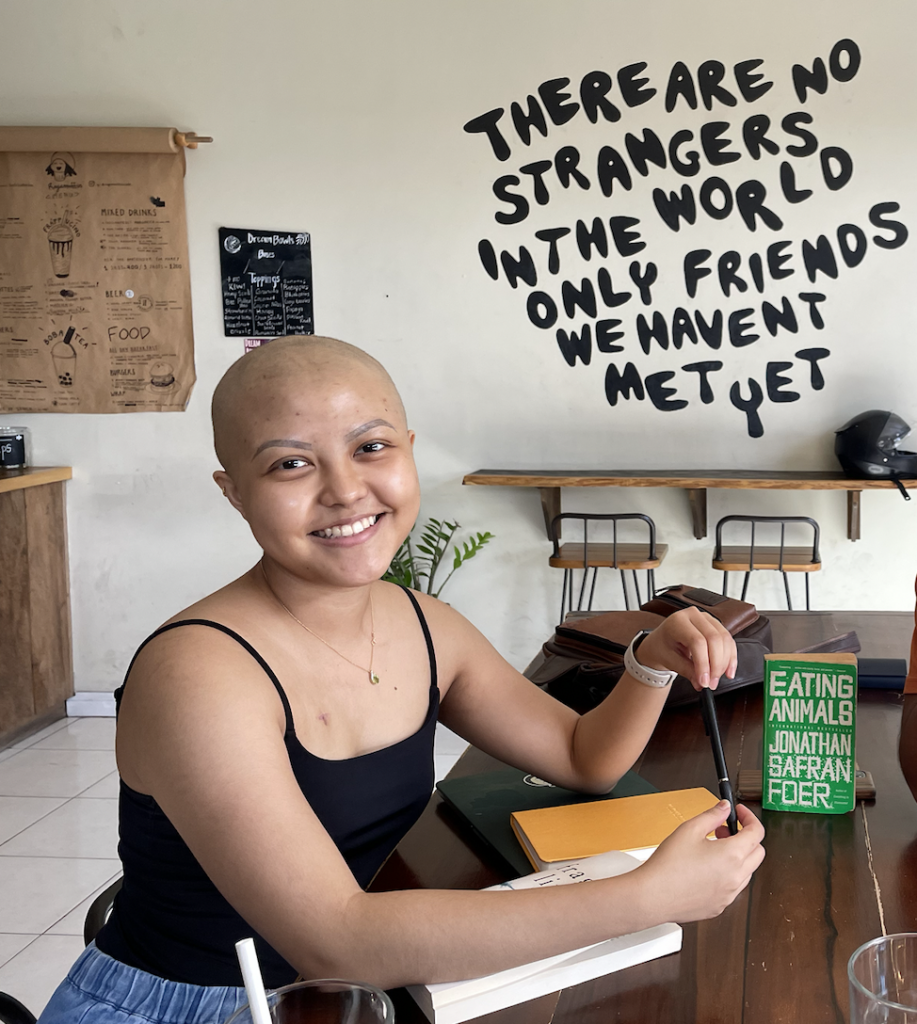There was a little over a year left until I was to graduate as a doctor. I had made it this far, and any ill feelings were brushed off to a mix of burnout, stress, and lack of sleep—trends of the trade.
My story started with an unassuming bloat. My lower abdomen felt hard at times and my pants felt tighter, but there was no pain or issues otherwise. Coincidentally, I was on a palliative care and oncology elective when I took the morning off to finally do an ultrasound. The immediacy of getting the report and urgency in being told to see my gynecologist was a cause for concern for my doctor parents—especially considering it was quite large and showed up within the past few months. It had to go, and so two weeks later I was being wheeled into surgery.
Clearly it wasn’t a vacation, but I was extremely glad to get a break from the fast-paced, demanding routine. But what was supposed to be a 6 week break to recover from surgery ended up extending to the end of the year – the mass turned out to be ovarian cancer and I would be needing chemotherapy.
It’s been less than a year since then. I’ve finished treatment, took some time to recoup after that, and now I’m back in school. But honestly, I went through so much in such a short time that I’m still dealing with the whiplash. In less than six months, I stopped school in the middle of the year, had major surgery, was diagnosed with cancer, and went through chemotherapy.
Now I find myself in the aftermath, feeling—every now and then—like I blipped (Marvel reference) for six months especially because I started and ended the year “normally”. I wouldn’t exactly call it survivor’s guilt, but there’s some level of imposter syndrome.
I lived out the experience, I know I did. So why do I find myself questioning it? Despite the brain fog and feeling like my short-term memory is shot, I remember it.
I remember the doctor opening with “It’s not good” as he ran me through my diagnosis without having much of a reaction. I remember finding out about Stupid Cancer and browsing through young adults’ stories. I remember getting the port-a-cath placed and the manhandling in trying to create a fat pocket to put it in. I remember bursting into tears a few weeks later because I could so obviously see the imprint of the tube at the base of my neck. I remember other random moments of bawling uncontrollably, triggered by no specific thing other than a feeling of tension that needed to be released.
I remember feeling mentally overwhelmed thinking of all the things I thought I could be doing better; questioning what I should or shouldn’t be doing or eating or feeling as I started my first round of chemotherapy. I remember feeling like I was never doing enough because of whatever I wasn’t doing according to social media health experts.
I remember getting pumped up with fluids and peeing every half-hour; feeling overloaded and taut by the end of the week, like I was filled with more volume than my body could handle. Having gained 20 pounds in 2 months, I remember always feeling discouraged any time I had to leave the house; my closet, a constant reminder I wasn’t who I used to be. The summer months made the hot flashes worse, and while the clothes were uncomfortable, what was unbearable was the misery of feeling claustrophobic in my own body; desperate to escape, to deflate at the end of the cycle, only to dread it again at the start of the next.
I remember my last cycle. I didn’t want to die, but the discomfort of living in those few days made me not want to exist. I remember how it felt like there was a layer inside my mouth, like I hadn’t brushed my teeth in a week; how everything tasted like wet cardboard and how even water was disgusting to me. My hands and feet were sore, my head hurt, my bones ached.
I remember being incredibly dull on my last day. I tried to have that woohoo moment of celebration, of being excited at the end. But the culmination of all the cycles and all the symptoms left me physically, mentally, and emotionally exhausted.
Despite all this, I hate the word ‘survivor’. I know I shouldn’t compare but my experience is objectively nothing in comparison to others. I don’t deny its significance or disregard the experience, but I also don’t feel like some soldier who fought a battle and survived. I surrendered to my situation and was fortunate enough to not be completely up-ended by it. But I can’t help but think of those who have suffered so much pain, loss, and uncertainty because of this thing called cancer.
I’ll probably be forever processing, but I’ve chosen to do so by letting my past unravel in the present and allowing myself enough grace to be unhinged. I learned so much about myself and what it was to be a patient. I’ve restarted my elective, still choosing palliative care because I have a more vested interest than ever in the holistic management of patients and responding to their total pain and suffering. I’ve always loved writing and have since started a blog to share my story—all my thoughts and feelings of life in the in-between and aftermath of young adult cancer.
By :Mya Khine

